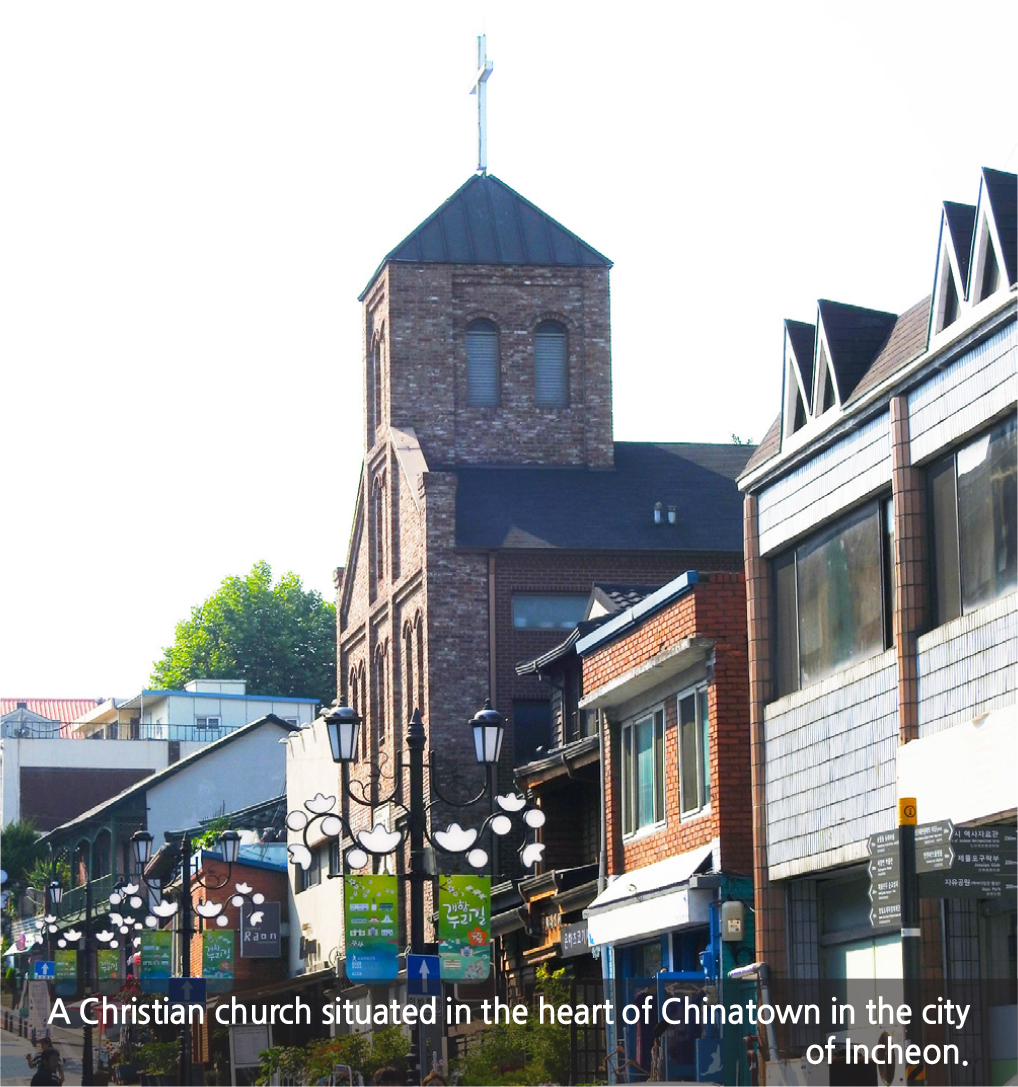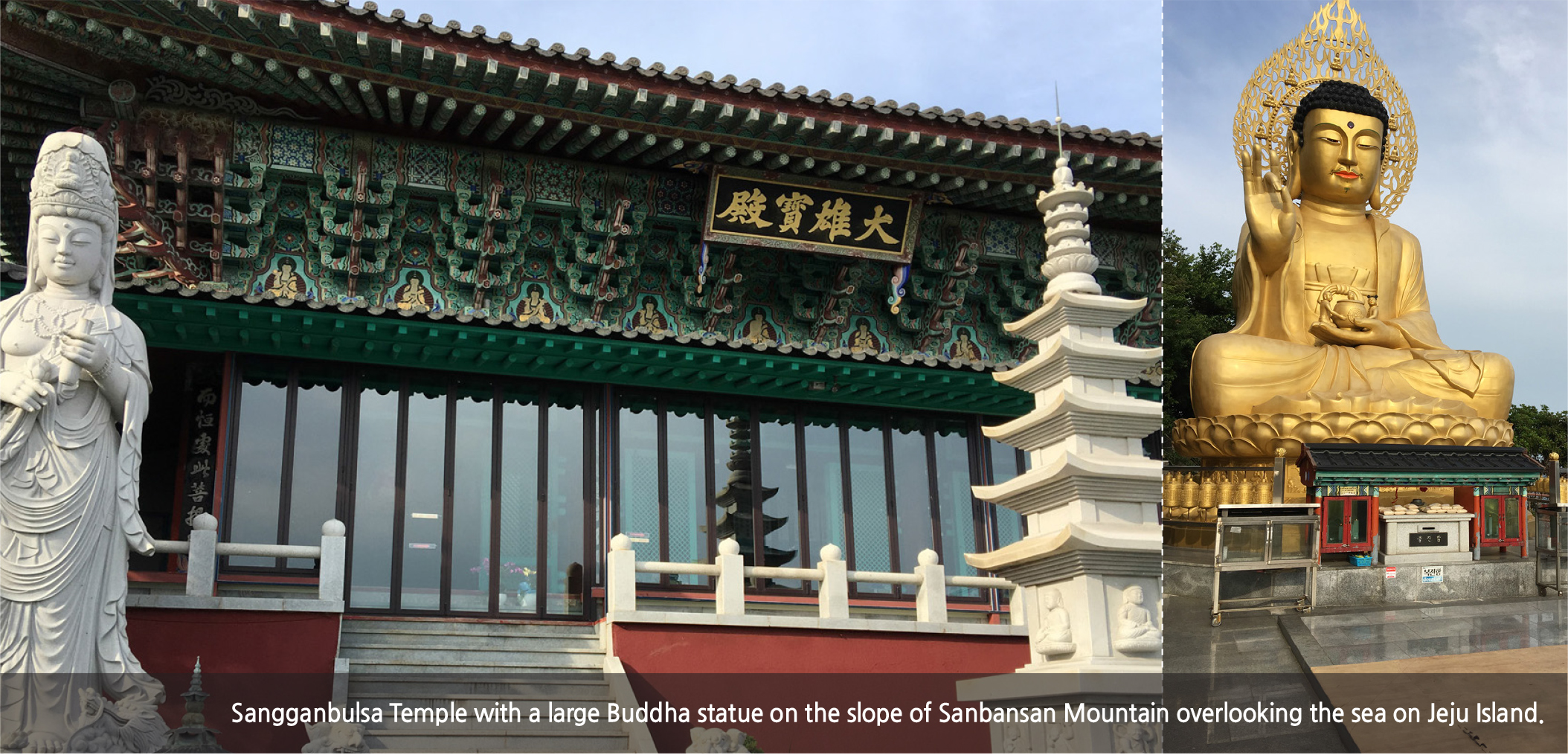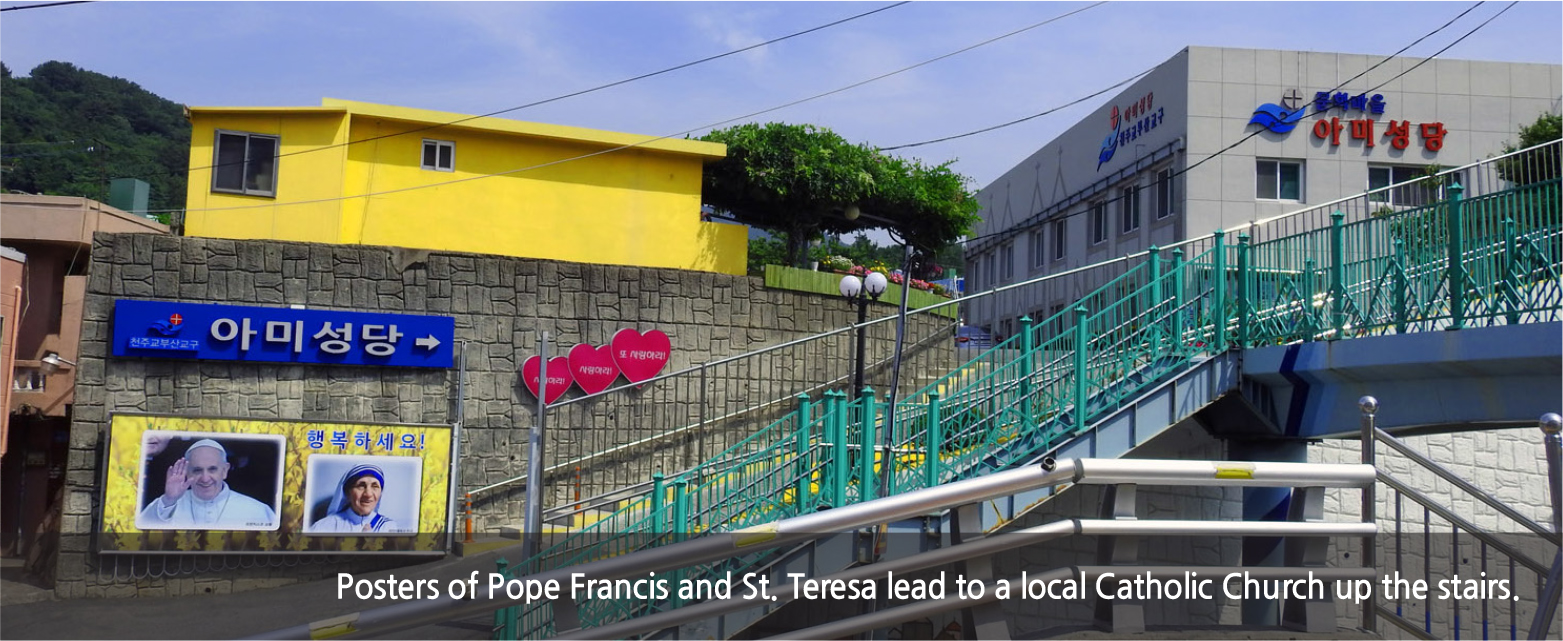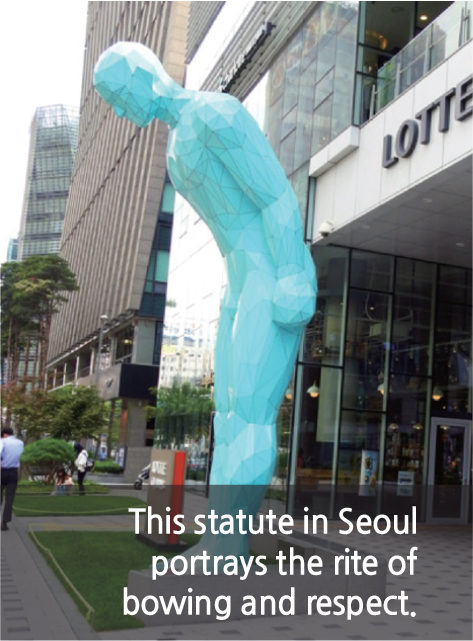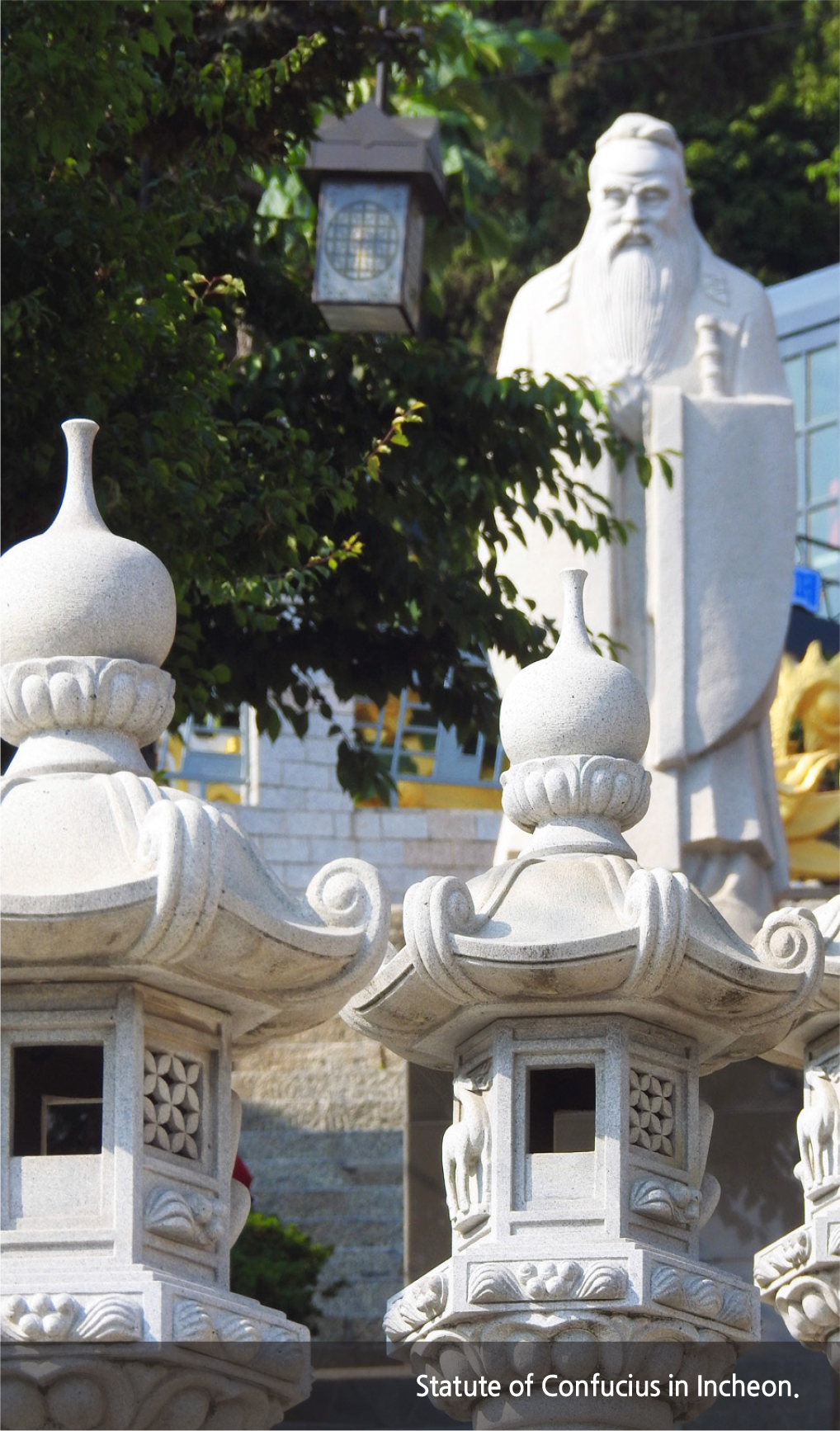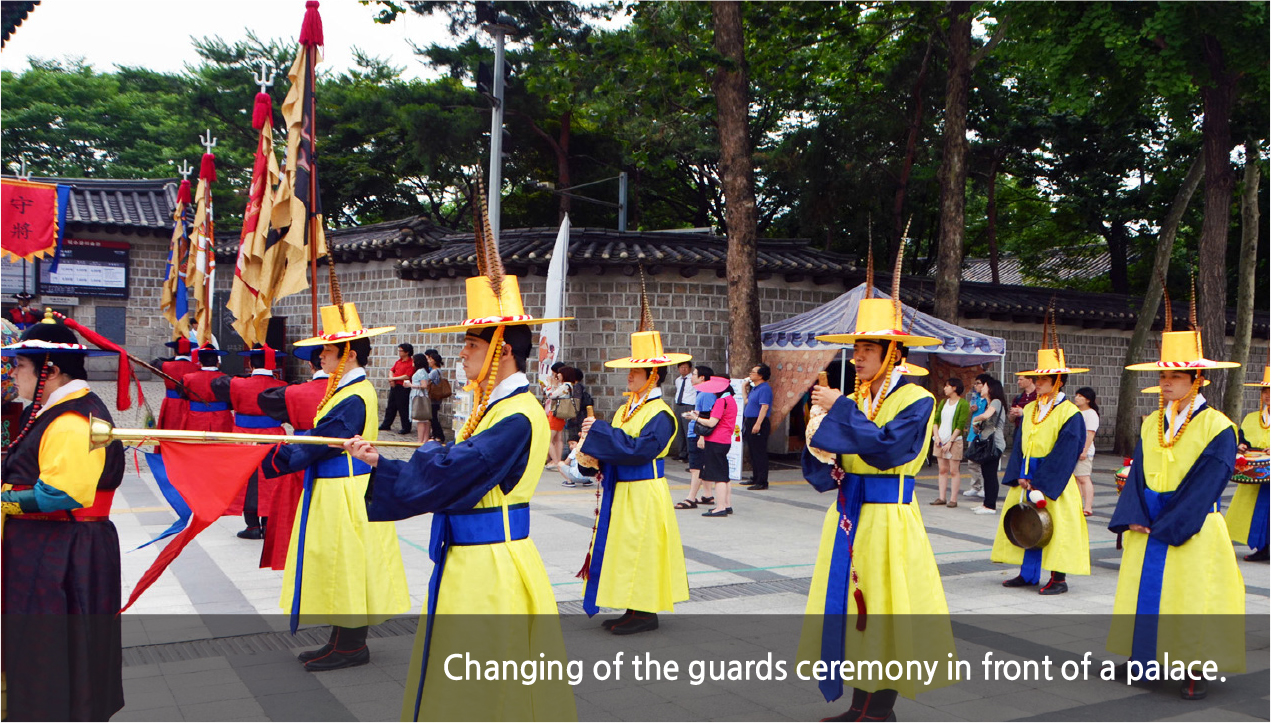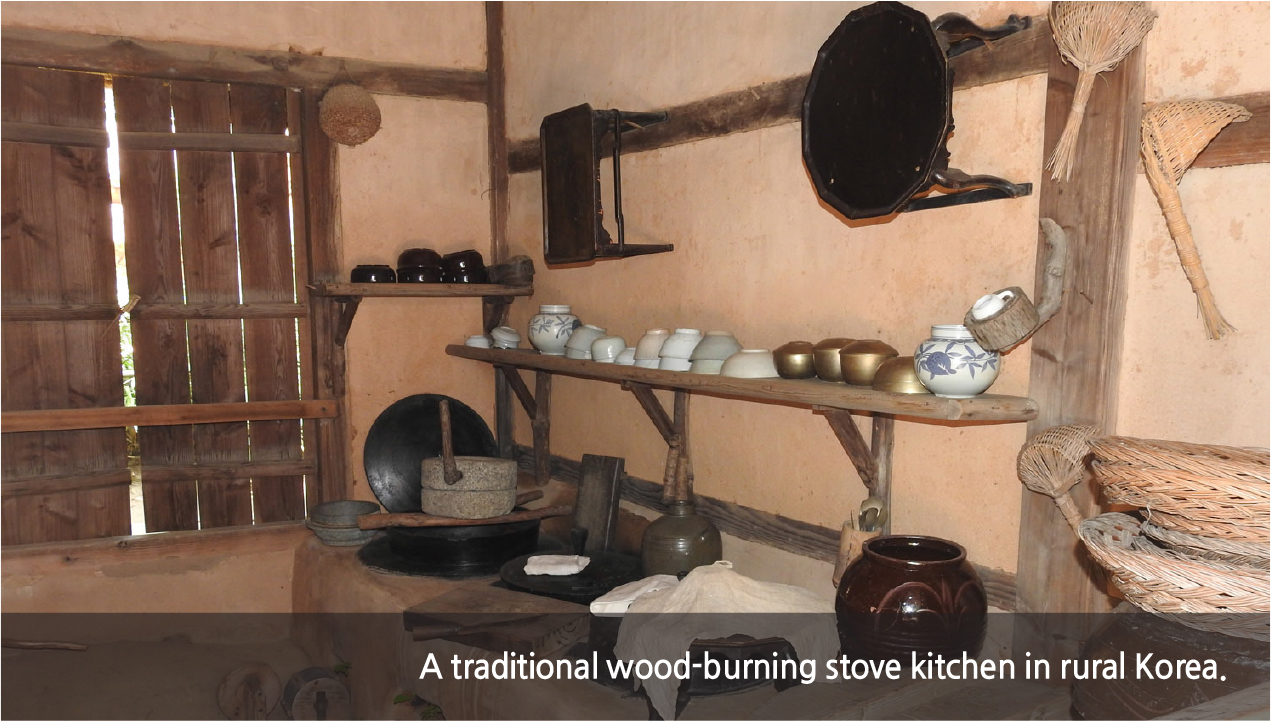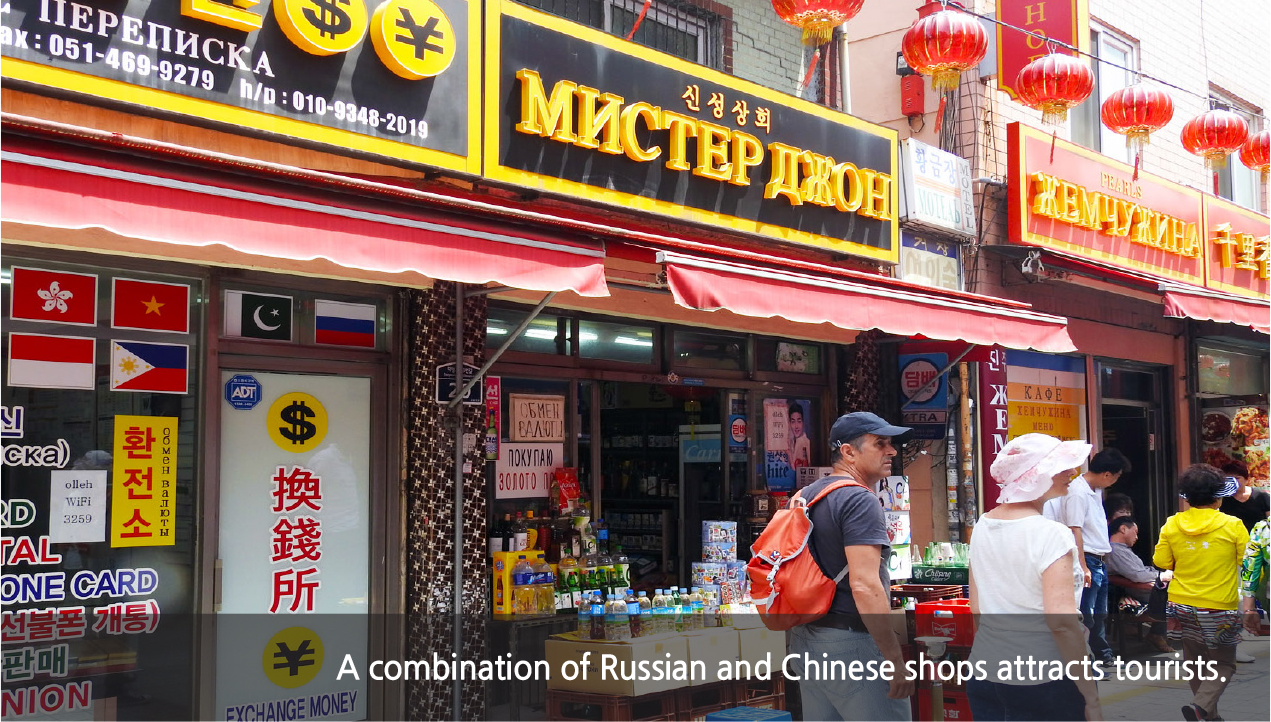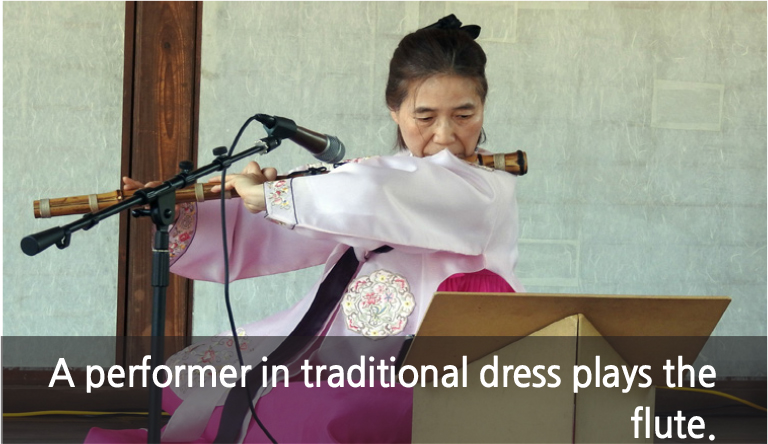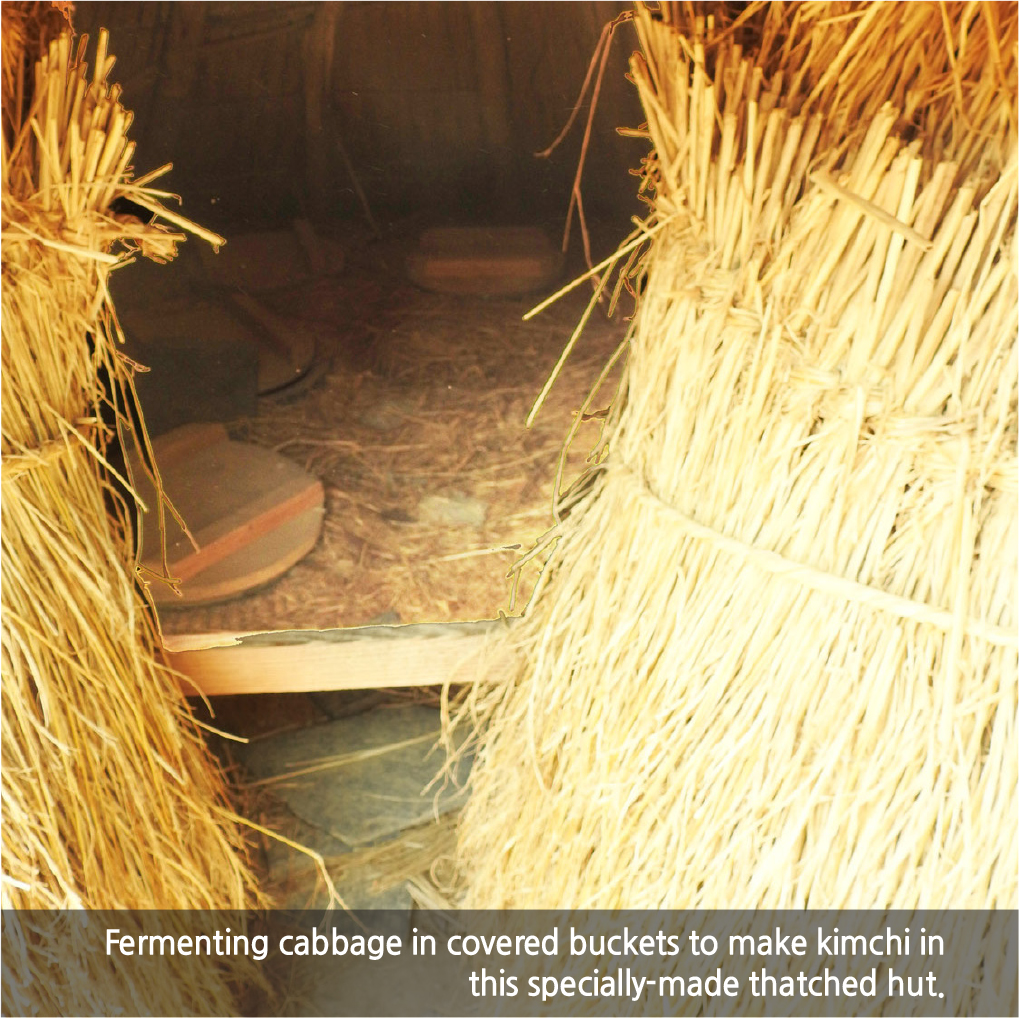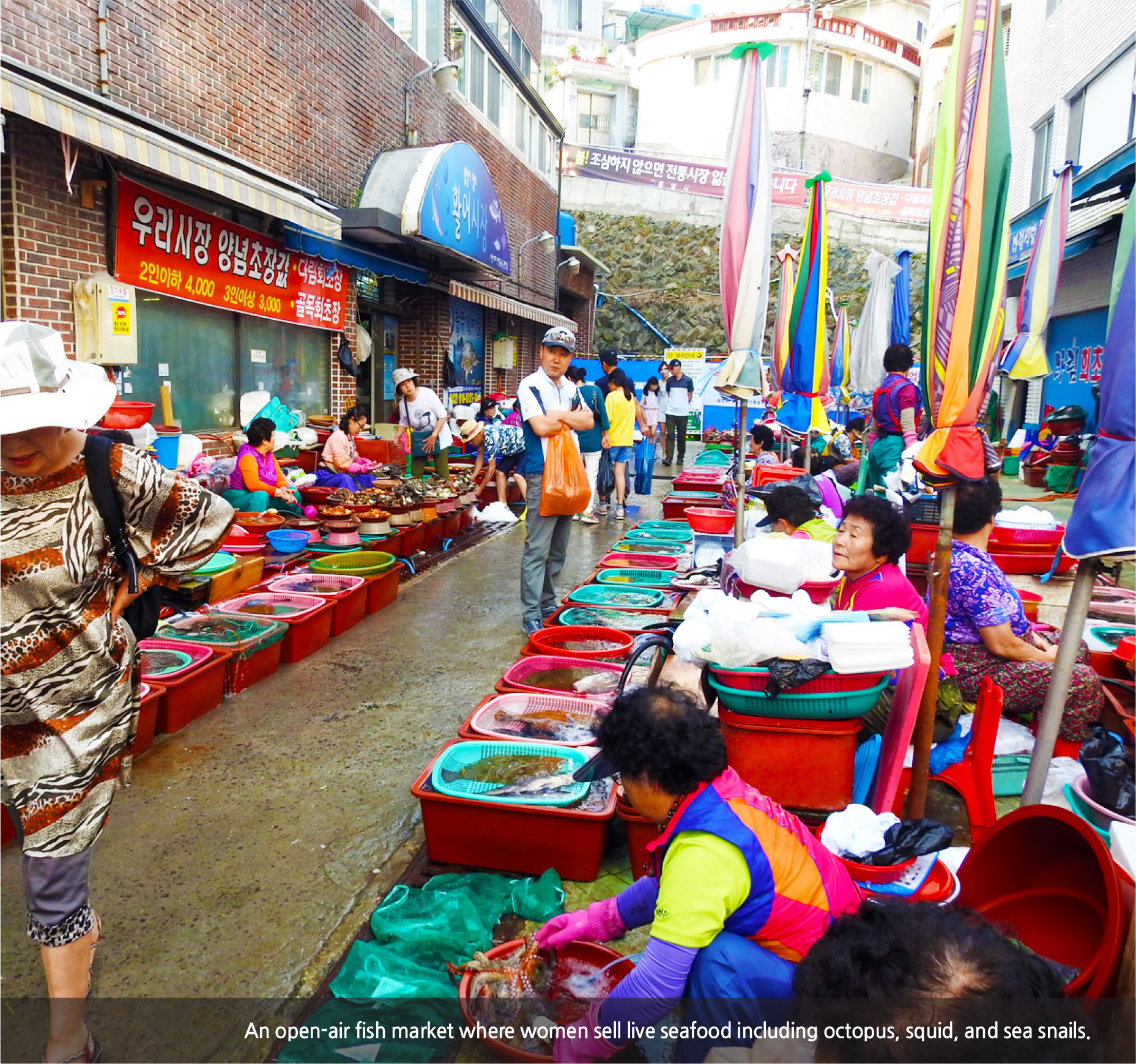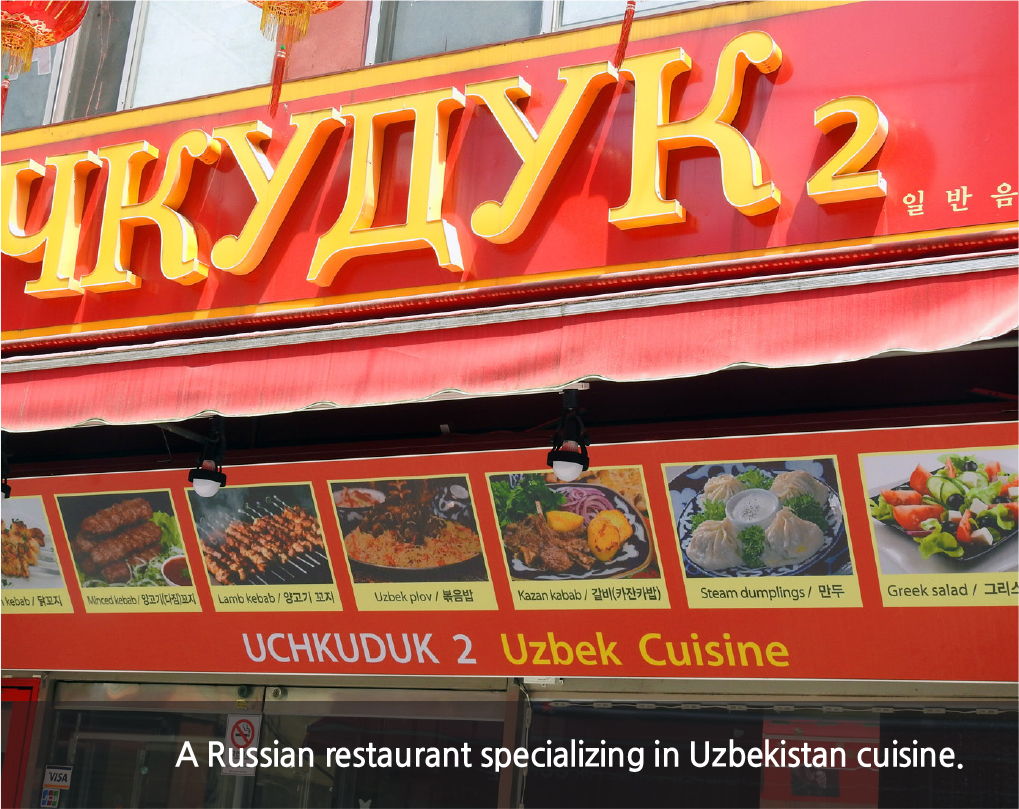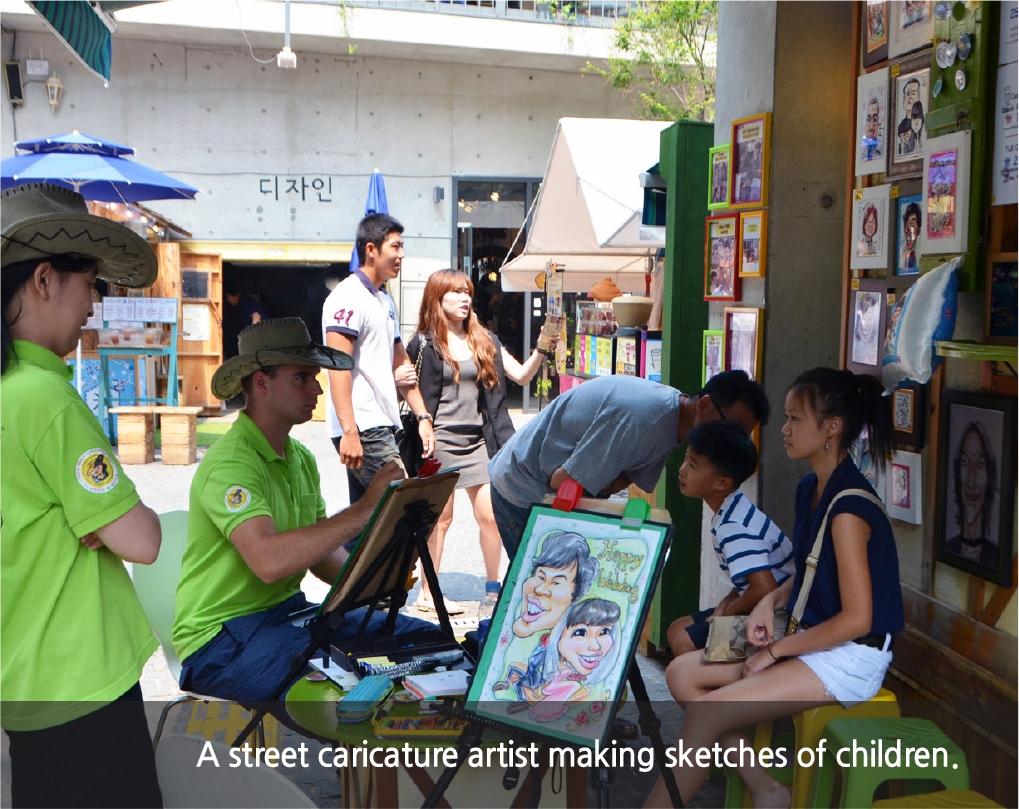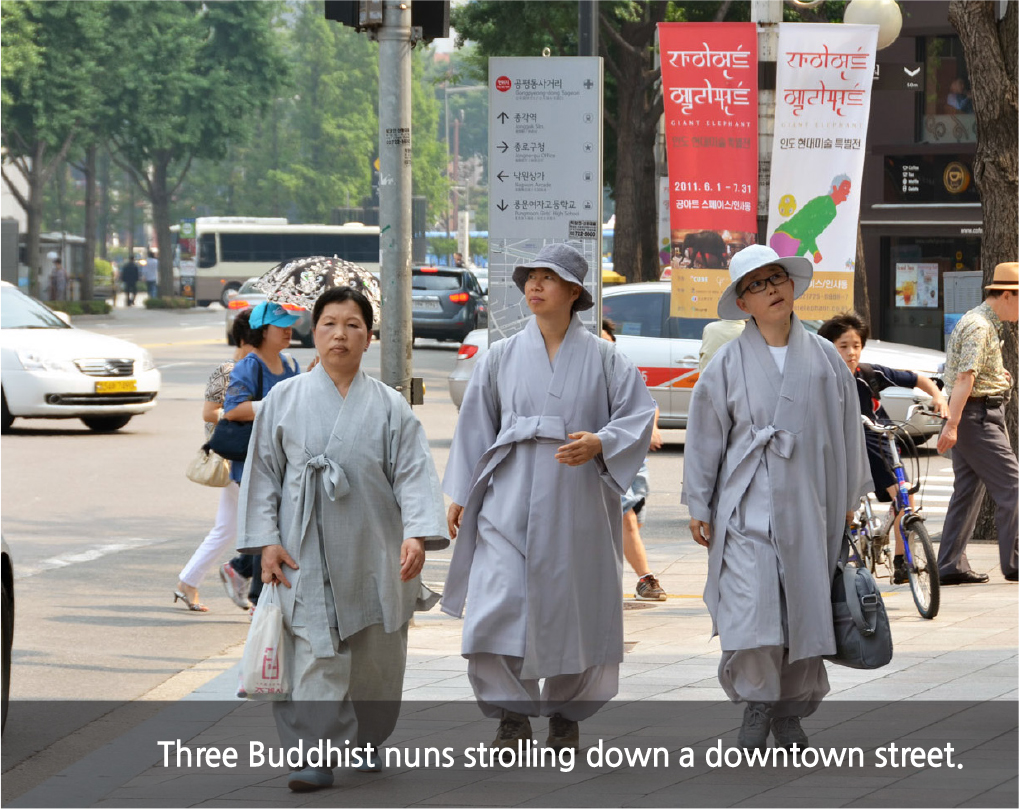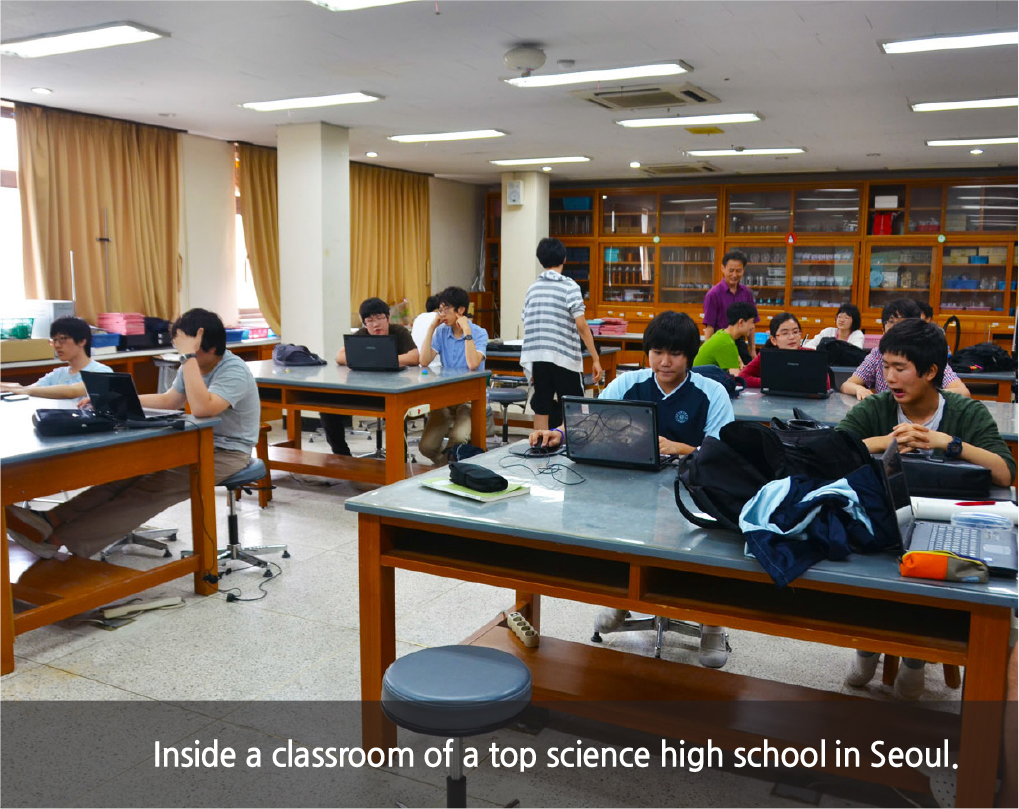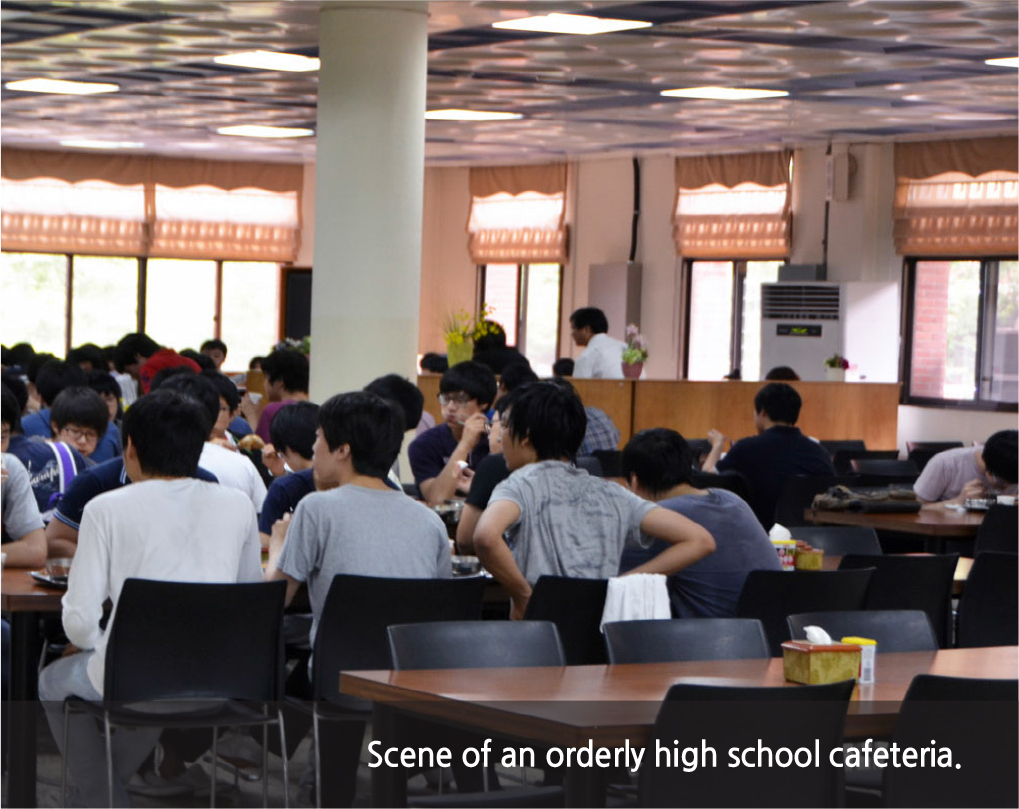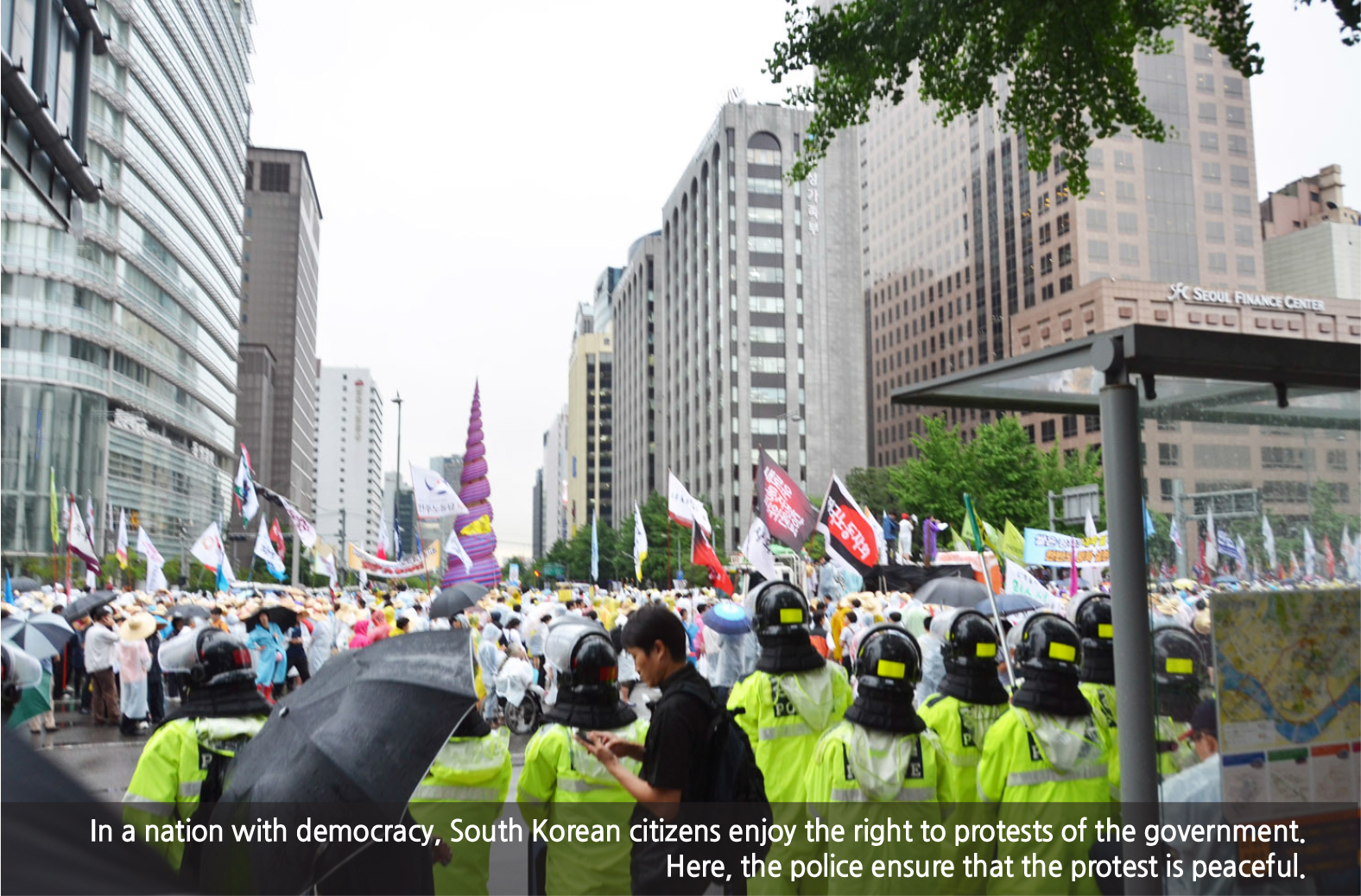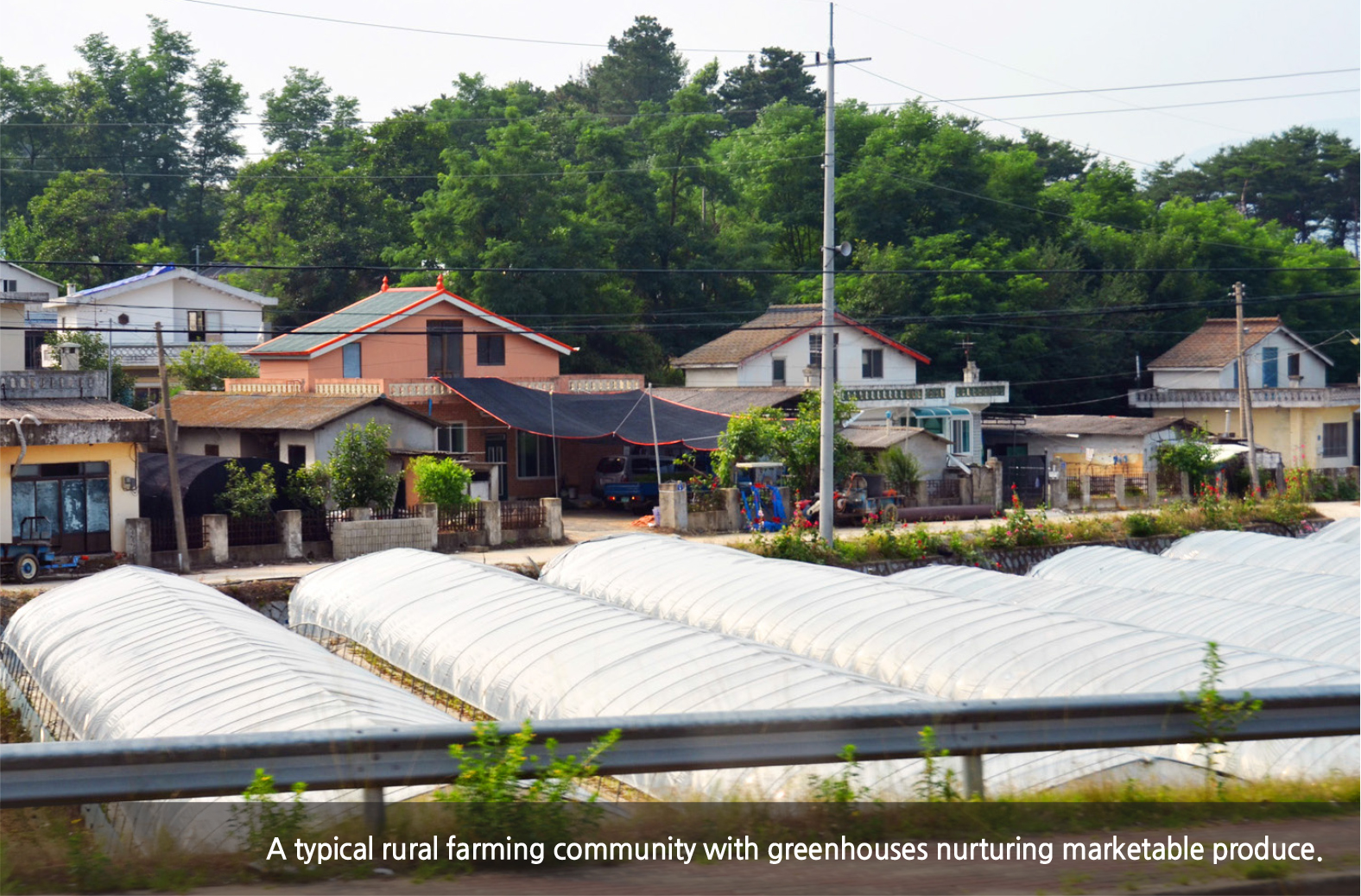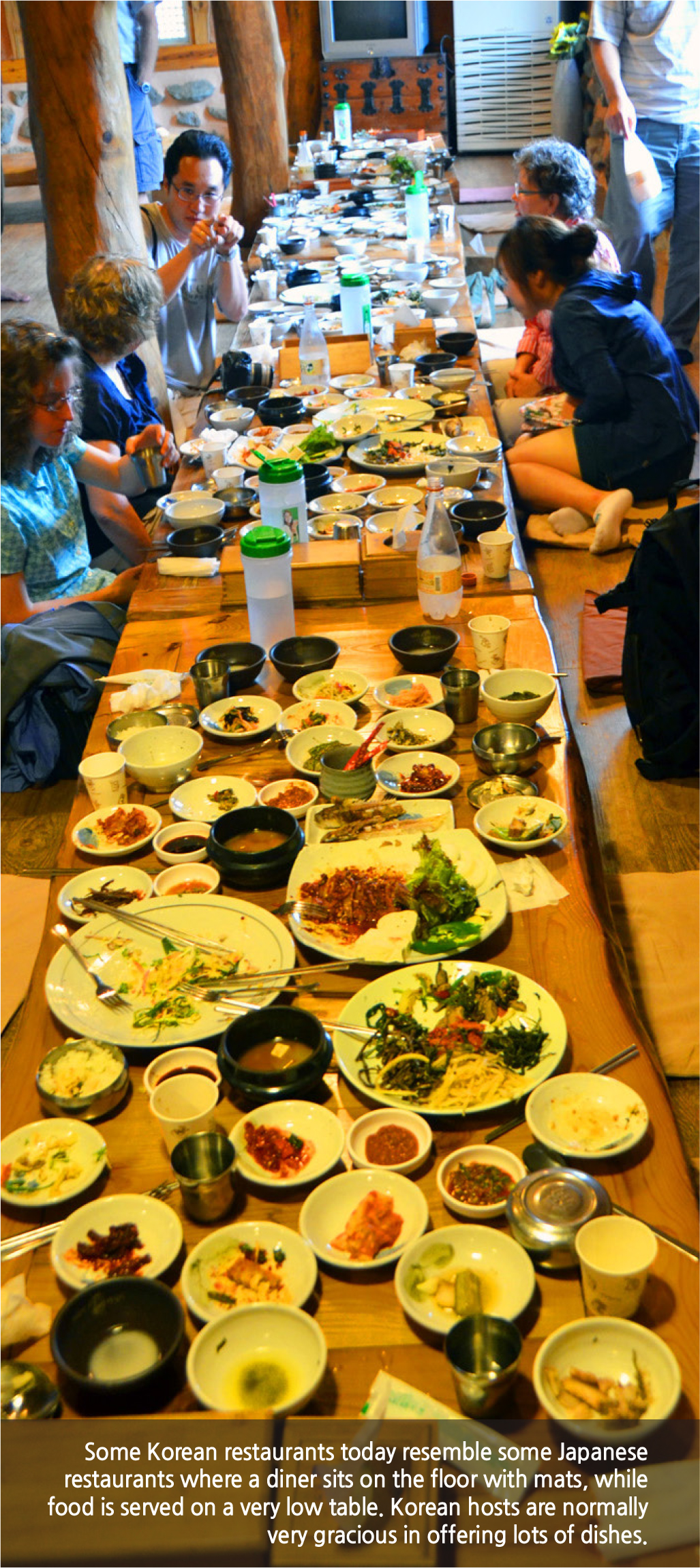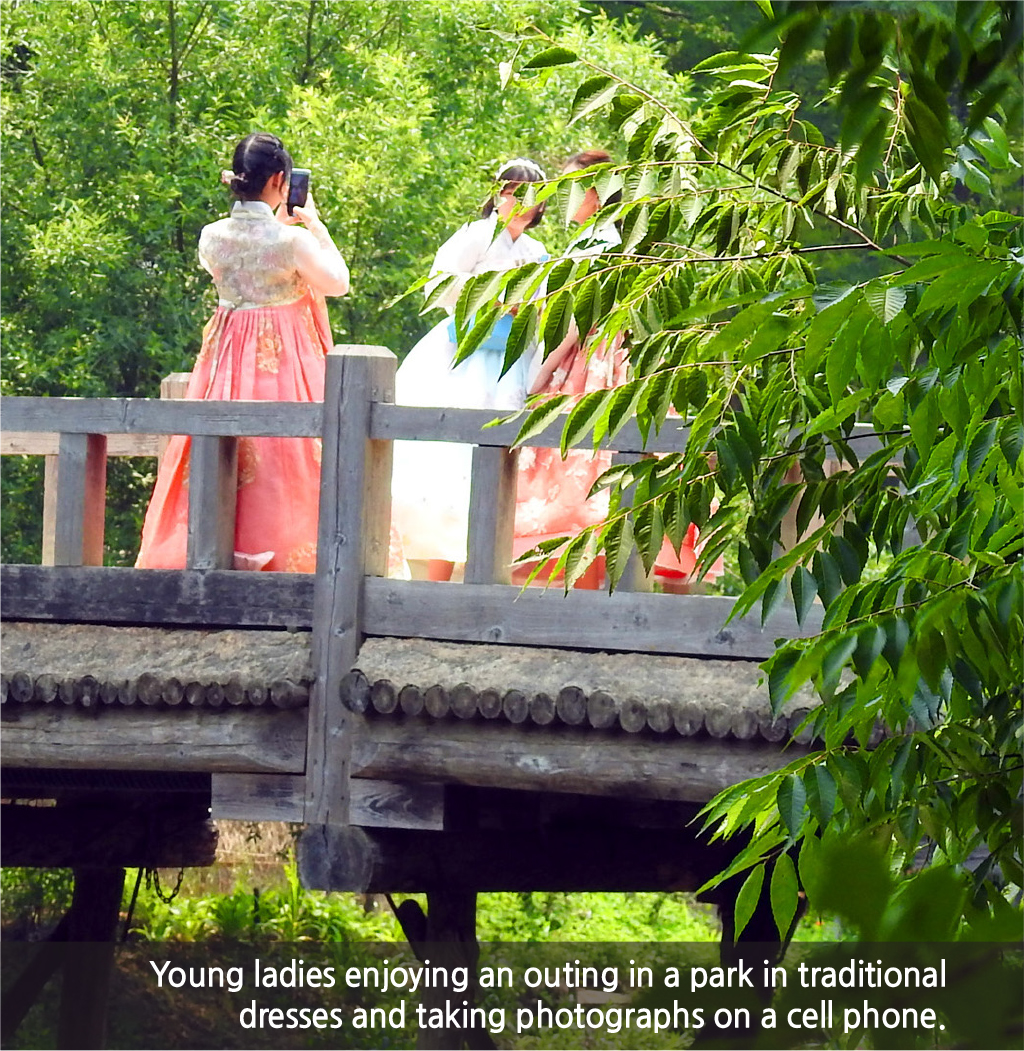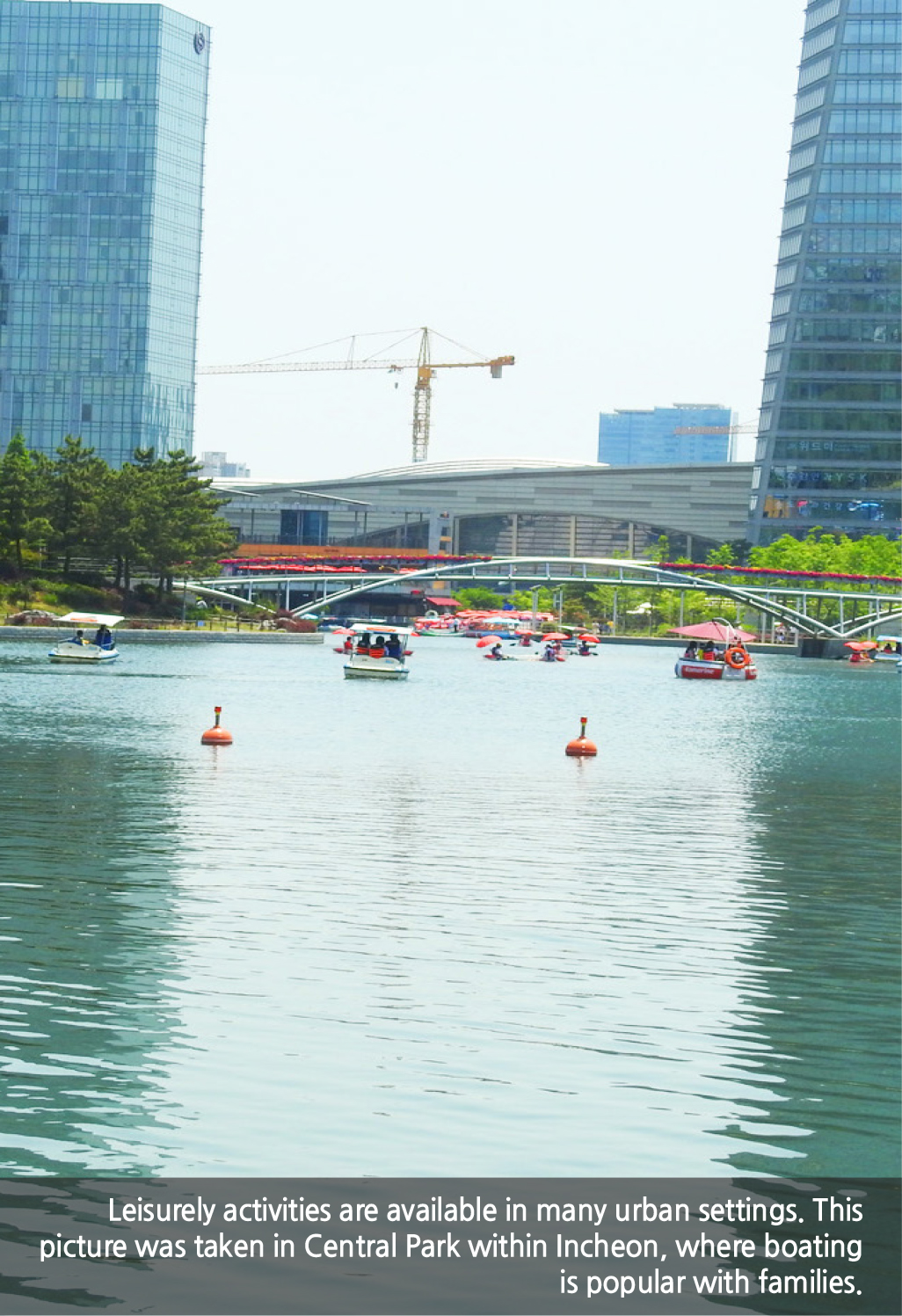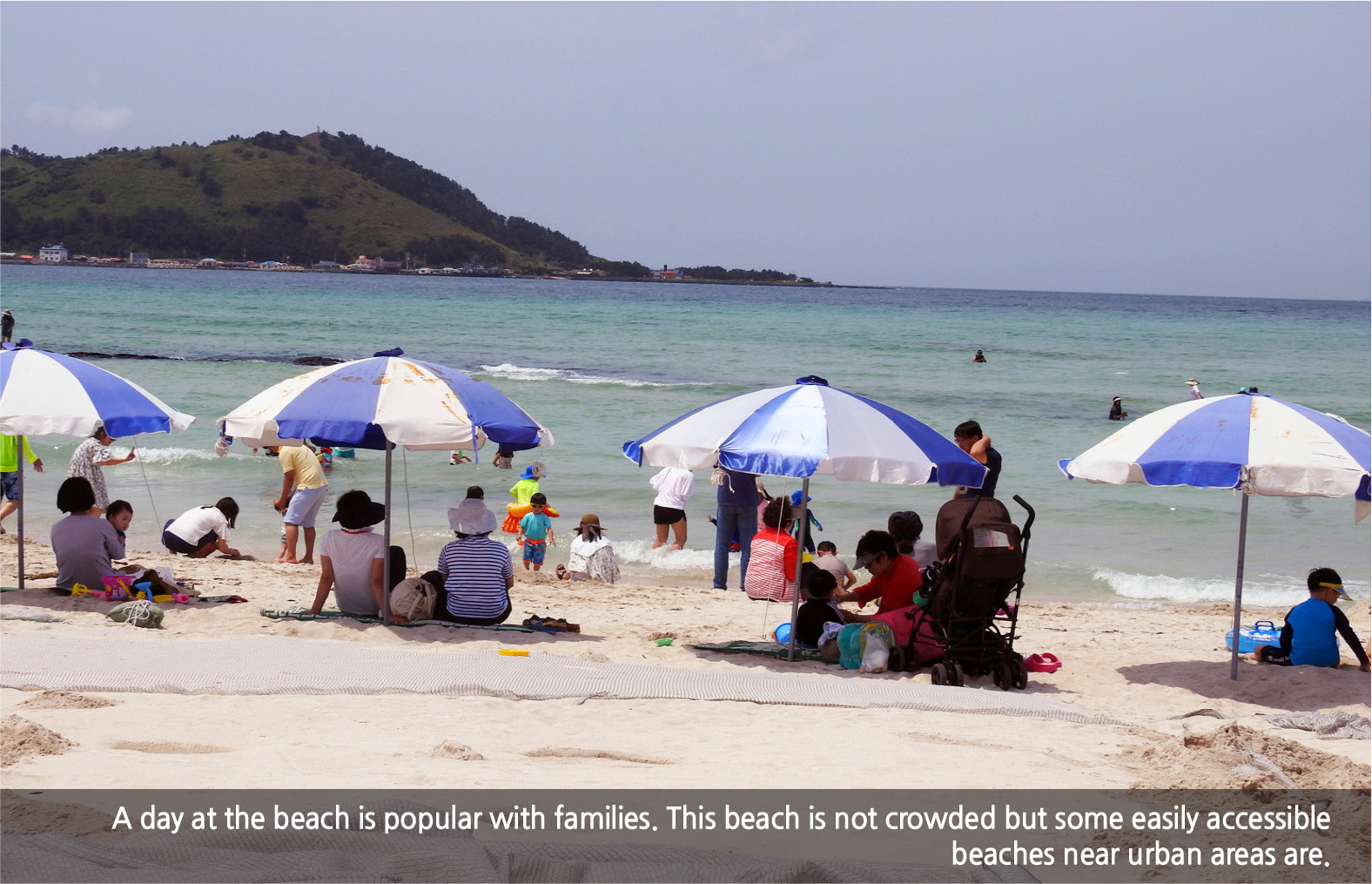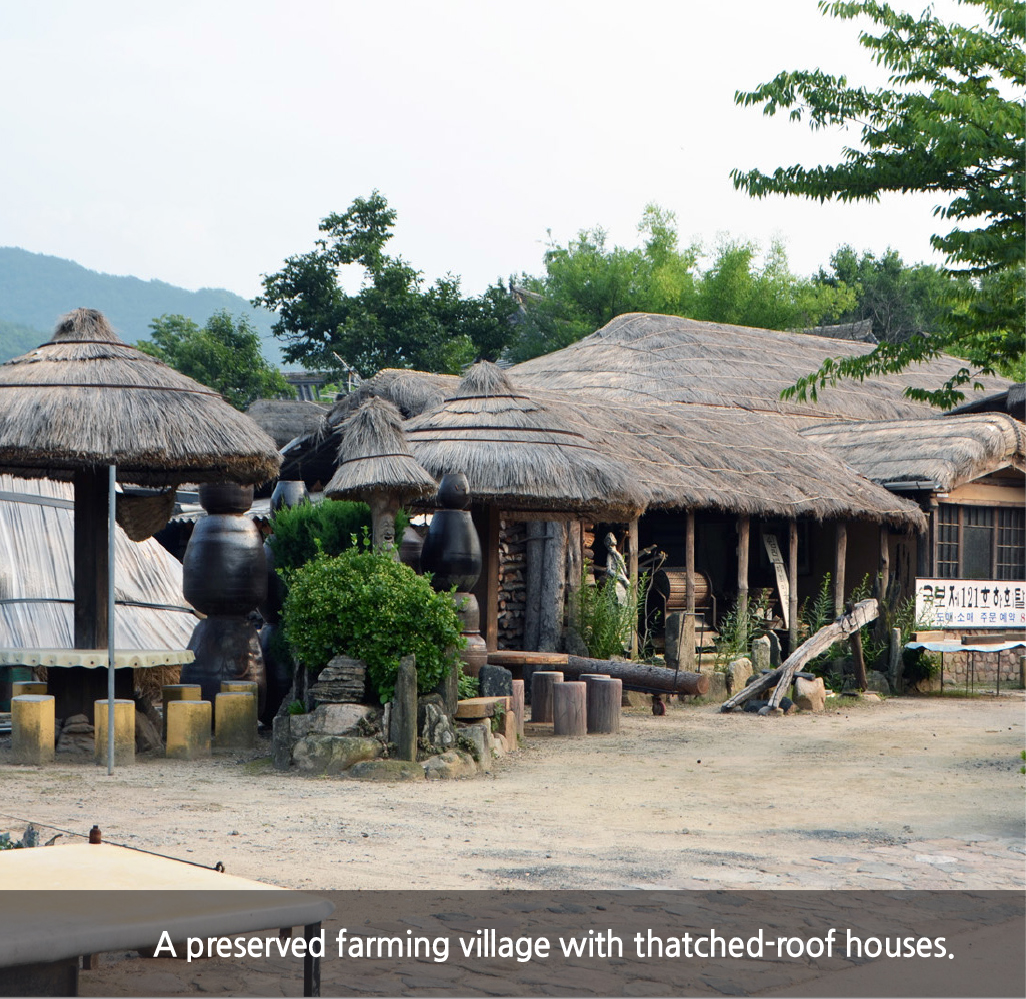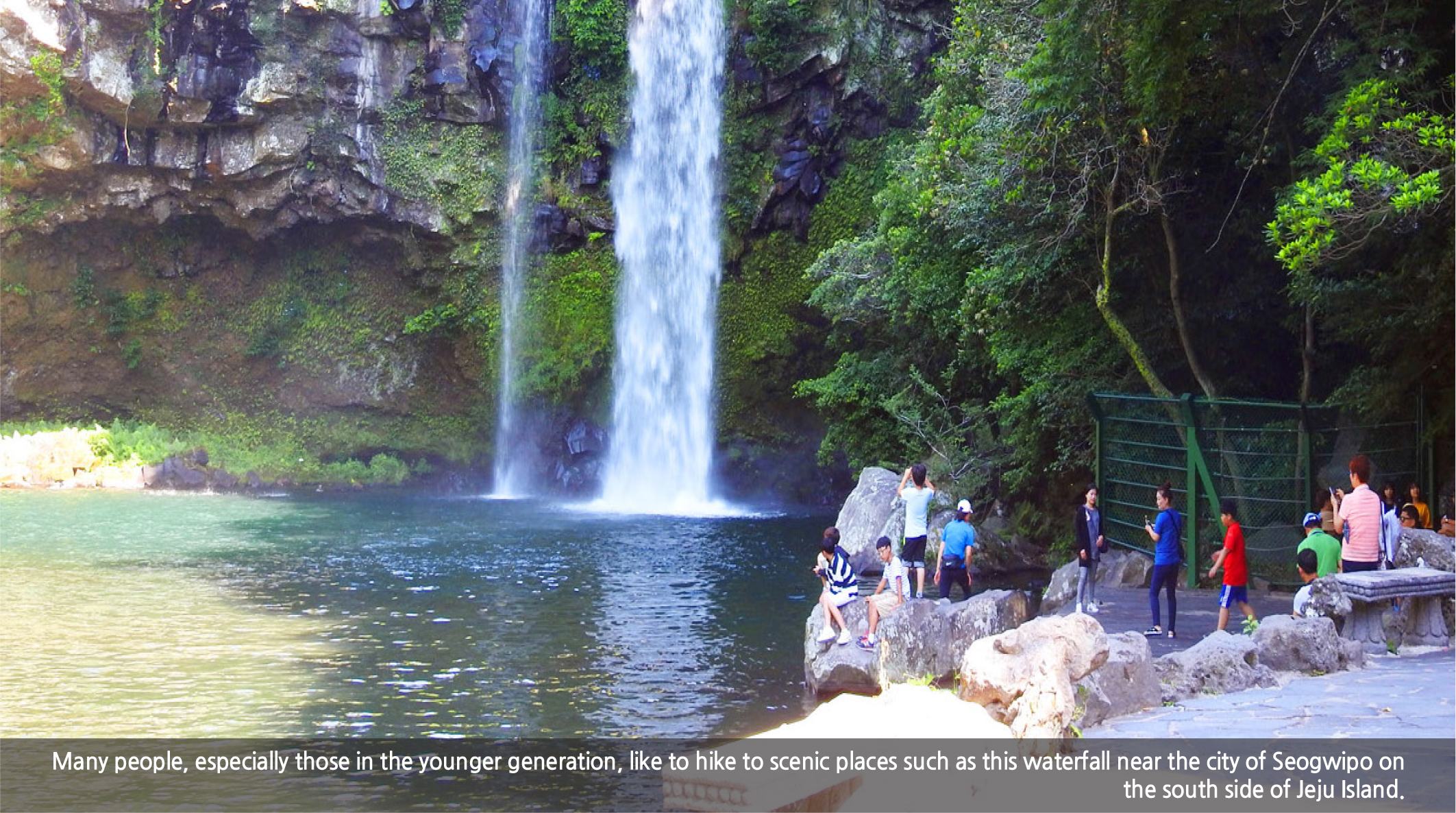Koreans live their daily lives with a deeply rooted set of traditional cultural traits in harmony with modern age norms. While the population is mostly native Korean, there are also substantial amount of foreigners living in Korea, providing a diversity of cultures. Among foreigners, the Chinese are the most notable in Korean society. The Chinatowns in Incheon and Busan have thriving businesses of various kinds. There is a presence of Russians in Busan due to the shipping business. Many Russian businesses are also mingled with Chinese businesses in the Chinatown in Busan, thus attracting a lot of tourists. Hundreds of thousands of Western foreigners live in Korea to conduct businesses, teach, or participate in joint exercises on military compounds, infusing some Western culture and businesses into the cultural landscape. American fast food chain stores, convenience stores, banks, insurance companies, and delivery services are everywhere.
Religion is an important part of Korean daily life. While the formal 2005 census tallied 29.2% of the population as Christians and 22.8% as Buddhists, these numbers may not be very accurate. The difficulty of collecting a proper tally of Korean religious citizens is that a substantial percentage of the population does not report itself as religious simply because there is no formal equivalent to a ’baptism ceremony’in Buddhist practices in Korea. However, these ’on-religious’persons grew up following their parents in beliefs in Buddhism and offer prayers in Buddhist temples. There are over 20,000 Christian churches in Korea and 935 registered Buddhist temples but the number of persons believing in Buddhism remains elusive. In addition, Buddhism in Korea has undergone various suppressions, first by Joseon Dynasty rulers, then by Japanese colonial rule, and later by Christian presidents of Korea. Some of the Buddhist temples were purposely turned into tourist destinations so that they can be government controlled. Infighting between Buddhist sects also turned people to adopt Christianity as their religion. By the 21st century, fighting between Protestants and Buddhists increased.
There are also other religions in Korea such as Catholicism, Islam, Hinduism, and some forms of indigenous religions that remained from the early history of the nation. The respective number of followers of each religion is relatively small compared to Protestants and Buddhists. Some scholars may reluctantly refer to Confucianism as a religion, but Confucianism in China and in Korea is considered a branch of philosophy that deals with moral codes. Some sections of Confucian codes, such as the class system, have long been disbanded while others such as parental obedience and respect for elders are strongly practiced in Korea. When friends, work associates, or even strangers meet, they lightly bow to each other with respect before engaging in a conversation. Around the dinner table and out of respect, no one will raise a pair of chopsticks unless the oldest person starts to eat first. The working age population is generally very hardworking, and students normally take their studies very seriously. Families also try to have quality playing time by traveling to the seaside, parks, or other cultural places. Perhaps the best way to portray Korean culture and daily life is through
Analytical Thoughts
How is the culture to which you are accustomed different from the Korean culture? Do you feel that you could live in a society with a very different culture? Could you adapt your daily life in an attempt to understand a different culture and a different people? Are you open-minded enough to accept the culture, daily life, religion, or food of a different group? How important is it to be open-minded in the age of globalization? Are you, or your family, using any manufactured product from Korea?

